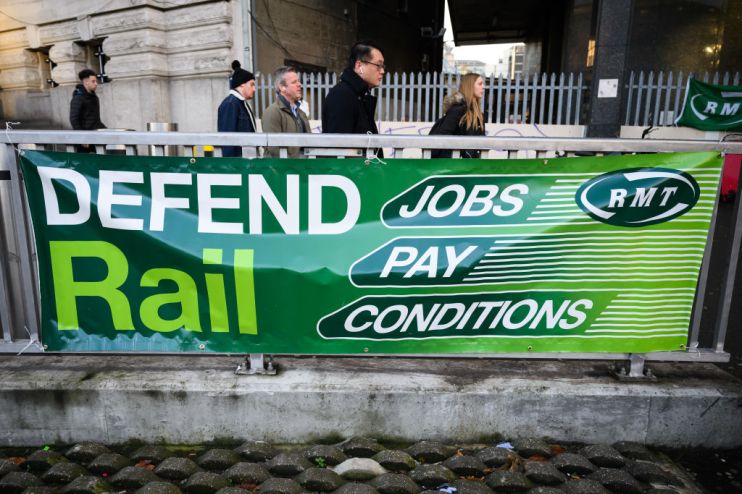Yet more rail strikes have been announced – here’s all you need to know

Commuters are to face yet more misery from rail strikes this August after the Rail, Maritime and Transport Union (RMT) announced fresh industrial action last week.
20,000 RMT members from a host of train operators nationwide will walk out, disrupting the UK’s rail network on dates that coincide with the August Bank holiday weekend.
The action follows hot on the heels of last weeks’ overtime ban from the train drivers’ union Aslef.
The dispute has pummelled Britain’s railways for well over a year now, yet a resolution looks further away than ever, with both the government and the unions seemingly unable to meet in the middle.
Here’s what to expect this month:
The first set of strikes from the RMT – the biggest rail workers’ union – will take place on Saturday, 26 August at the beginning of the bank holiday weekend.
The union’s rail employees, who work as ticket office staff, rail guards and signallers, will follow this up with another walk-out on Saturday 2 September.
14 train operators will be affected on both days.
These are Chiltern Railways, Cross Country Trains, Greater Anglia, LNER, East Midlands Railway, c2c, Great Western Railway, Northern Trains, South Eastern, South Western Railway, Transpennine Express, Avanti West Coast, West Midlands Trains and GTR.
Many operators included in the strikes run rail routes through major London hubs, such as GTR – whose sub brands include the Gatwick Express and the Thameslink – the Euston-headquartered Avanti West Coast and Kings Cross-based LNER.
Previous RMT strikes have resulted in a near total shutdown on the majority of the UK’s rail services and the latest action is unlikely to be any different.
Are further walk-outs likely?
There have been moments this year in which an end to the ongoing feud over pay, jobs and pensions looked likely – but now is not one of them.
The network has just emerged from an overtime ban from the train drivers’ union Aslef, which ran between Monday 7 August and Saturday 12 August and three days of RMT strikes in July.
Ahead of August’s disruption, the RMT said it had been given “little choice” but to take further action as it had seen no improved or revised offer from the Rail Delivery Group (RDG) – the rail membership body tasked with negotiating on behalf of operators.
Lynch said: “My team of negotiators and I are available 24/7 for talks with the train operating companies and government ministers.
“Yet, quite incredibly, neither party has made any attempt whatsoever to arrange any meetings or put forward a decent offer that can help us reach a negotiated solution.”
The government, meanwhile, believes it has played its part in facilitating a fair pay offer that would see “generous increases” for rail workers and has urged union bosses to stop blocking their members from voting on pay offers.
A spokesperson for the RDG, said: “We remain open to talks and we have said repeatedly that we want to give our people a pay rise, but until the union leadership and executive is united in what it wants and engages in good faith with the 30 per cent shortfall in revenue the industry is continuing to grapple with post Covid, it is difficult to move forward.””
The failure to reach a resolution on Britain’s rail comes despite nearly 4m working days being lost to industrial action so far this year, according to a recent report from the Resolution Foundation think tank.
At this stage, further disruption seems inevitable.